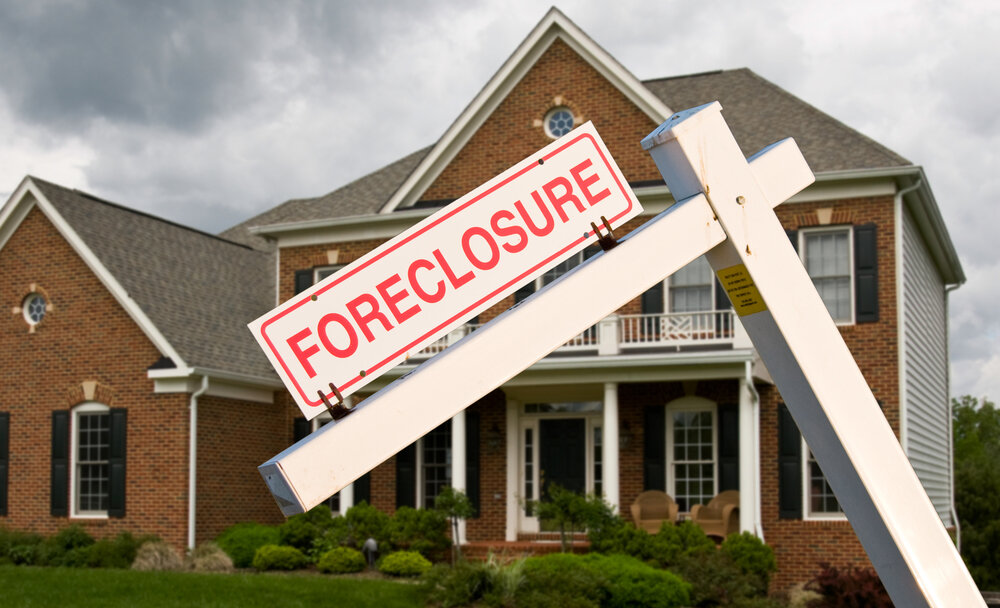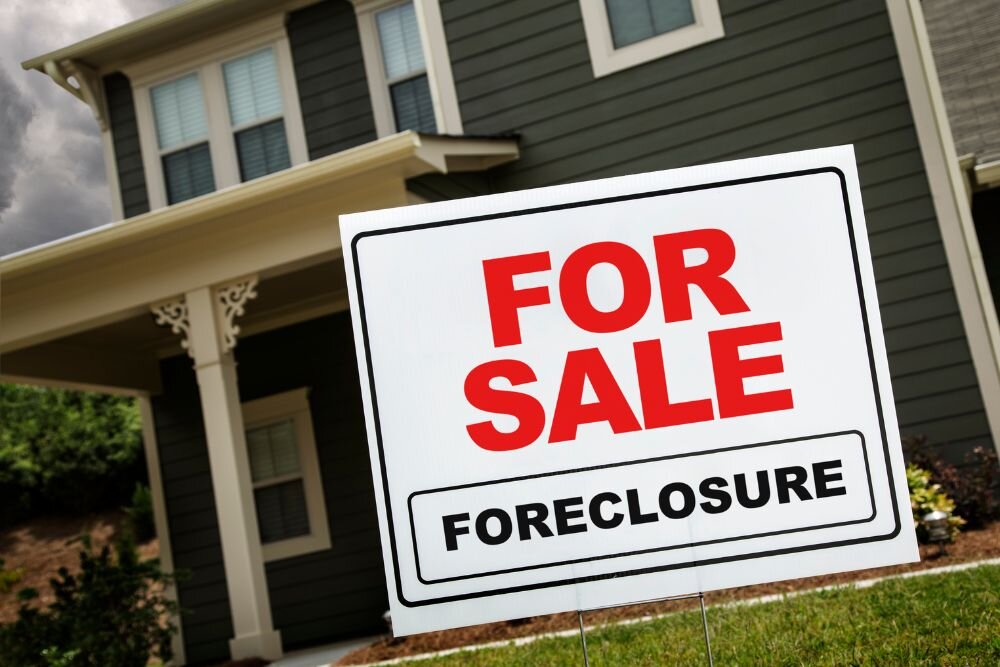Stop foreclosure on Long Island, NY, with Prestige Home Buyers. Get expert legal help to protect your home and find immediate solutions.
Understanding Foreclosure on Long Island: Early Warning Signs & Causes
Identifying the Early Warning Signs of Foreclosure

Facing foreclosure is serious, and catching the early warning signs is key. Here’s what to watch for:
- Missed Mortgage Payments: If you’re behind on mortgage payments, take action fast. Missing many mortgage payments could lead to Long Island house foreclosure.
- Lender Communication: A notice of default from your lender shows your loan is at risk. This stage is when you should seek foreclosure defense options.
- Increasing Debt: Rising debt and financial issues can cause defaults and increase the threat of foreclosure.
If you see these signs, reaching out for professional advice can help protect your home.
Common Causes of Foreclosure on Long Island
Knowing the causes of foreclosure can help you prevent it:
- Job Loss: Losing your job can make it difficult to keep up with mortgage payments, raising the risk of foreclosure on Long Island.
- Unexpected medical costs could drain your resources and cause problems with financial management.
- Real Estate Market Fluctuations: Changes in the housing market can affect property values and mortgage loans, increasing foreclosure risk.
If these situations apply to you, seek foreclosure prevention advice to find solutions.
Comprehending the Notice of Default and Your First Steps
Getting a notice of default is alarming, but understanding it helps you take action:
- Communicate with Your Lender: Contact your lender as soon as possible. They might offer modified payment plans or other solutions.
- Seek Legal Services: An attorney specializing in foreclosure defense can guide you through the foreclosure process.
- Explore Mortgage Help Options: Look into local programs offering mortgage assistance to stop foreclosure on Long Island.
Act quickly after receiving a notice to improve your chances of keeping your home. For further information and resources, click here to learn about foreclosure prevention strategies.
Stopping Foreclosure: Options & Strategies
Negotiating with Your Lender: Loan Modifications & Forbearance
When you’re facing foreclosure, negotiating with your lender can help. A loan modification might change your mortgage terms, like lowering the interest rate or extending your payment schedule. This procedure makes payments easier for the borrower. Forbearance allows you to temporarily reduce or pause your payments.
Steps to Negotiate:
- Contact your lender early: Reaching out shows you are taking responsibility.
- Prepare your financial documents: You will need to show proof of hardship.
- Explore options for modifying loans: Ask about reducing interest rates or extending terms.
- Request forbearance if needed: Temporary relief can help during short-term difficulties.
Exploring Short Sales and Deed in Lieu of Foreclosure
If keeping the property is not possible, a short sale or a deed in lieu of foreclosure might be options. A short sale involves selling the property for less than the mortgage balance, with the lender’s approval. This type of deal requires negotiation but can help avoid foreclosure.
A deed in lieu of foreclosure lets you transfer ownership directly to the lender. The move settles your debt without going through foreclosure.
Benefits:
- Avoid damaging your credit: these options usually hurt your credit less than foreclosure.
- Potential debt forgiveness: Some lenders may forgive the remaining debt after the sale.
Legal Options: Bankruptcy, Foreclosure Defense, and Attorney Representation
Legal avenues can provide structured relief. Filing for Chapter 13 bankruptcy could prevent foreclosure and let you restructure your obligations. Foreclosure defense is the legal challenge of the foreclosure in court, which could either stop the process or buy more time. For homeowners looking for a quicker solution, companies that buy houses in Smithtown can also offer a way out, often providing fast, cash-based purchases with minimal hassle.
Legal actions to think about:
- Talk to a knowledgeable lawyer; their knowledge of foreclosure defense will help you.
- Explore bankruptcy: See if Chapter 13 bankruptcy is feasible for restructuring debt.
- Recognize your legal options: You may need to take legal action to defend your homeowner rights.
Government & Non-Profit Assistance Programs
Several government and non-profit programs offer help to homeowners facing foreclosure. The U.S. Department of Housing and Urban Development (HUD) provides resources and support.
Available Resources:
- HUD-approved housing counselors: Get tailored advice on prevention.
- Government relief programs: Check federal initiatives designed to help distressed homeowners.
- Non-profit support: Organizations like NeighborWorks America provide housing assistance.
These channels can offer necessary help and resources to handle foreclosure challenges effectively. Prestige Home Buyers is dedicated to providing solutions to maintain homeownership and stabilize your financial future.
Finding Help & Resources on Long Island
Locating Foreclosure Assistance Resources in Nassau County

Facing foreclosure in Nassau County can be tough for homeowners. If you are having trouble with mortgage payments, knowing where to find help is key. Many resources are ready to offer foreclosure assistance and legal aid—including investor home buyers in Southampton who can provide fast solutions by purchasing homes directly, often with cash offers and flexible closing timelines.
- Foreclosure Assistance Programs: Look for local programs that support homeowners. These organizations can guide you through the foreclosure process and help you explore options to stay in your home.
- Legal Aid Services: Access legal resources that provide advice on foreclosure defense. They can represent you in talks with your lender and give necessary legal support.
For personalized guidance on your situation, contact us.
Accessing Foreclosure Assistance Resources in Suffolk County
Homeowners in Suffolk County have various options for foreclosure help. It is important to find resources that match your needs.
- Mortgage Relief Options: Check out financial assistance programs that ease mortgage burdens. These may offer temporary relief or more permanent solutions to prevent foreclosure.
- Attorneys and Legal Services: Find experienced attorneys who focus on foreclosure prevention. They can review your case and offer strategies to protect your home.
Reach out for support. Contact us today to learn more about your options.
Locating Attorney Services & Legal Aid for Foreclosure Prevention
Getting legal aid is crucial for effective foreclosure prevention. The right representation helps you handle the complex legal details of foreclosure defense.
- Legal Aid Organizations: These groups offer free or low-cost legal services to those in need, working to protect your rights during foreclosure.
- Foreclosure Defense Attorneys: Specialized law firms have expertise in foreclosure cases. Their knowledge helps delay or stop foreclosure actions.
For more details on how legal aid can help, reach out to connect with nearby providers.
Accessing Relevant Government Programs (HUD, etc.)
Government initiatives, like those from HUD, provide essential support for homeowners facing foreclosure. These programs offer financial aid and homeowner protection.
- HUD Assistance: The U.S. Department of Housing and Urban Development offers programs to prevent foreclosure and help maintain homeownership.
- Federal Resources: Explore loans, grants, and other aid from federal agencies that support homeowners in distress.
To discover available government programs, get in touch, and we’ll guide you through the process.
Prestige Home Buyers is dedicated to helping Long Island residents with foreclosure challenges. For direct assistance or more info, please contact us.
Navigating New York Foreclosure Laws & Avoiding Scams
Understanding Your Rights as a Homeowner Facing Foreclosure in NY
Should you own a house in New York and be under foreclosure, knowing your rights is crucial. Understanding your legal choices can significantly impact the foreclosure process, despite its difficulty. Homeowners have particular rights, including
- I have received a 90-day pre-foreclosure notice.
- I am participating in a mandatory settlement conference.
These steps give you a chance to explore alternatives to foreclosure. Legal services are there to guide you throughout this time. Long Island residents may find specific assistance. Talking to a qualified lawyer can help you investigate possible defenses and safeguard your rights.
The Legal Steps Involved in a New York Foreclosure Case
Understanding the steps in a New York foreclosure case includes several stages:
- Notice of Default: This form of notification is when the lender tells you about missed payments.
- Lawsuit Filed: The lender files a lawsuit if the default isn’t resolved.
- Court Proceedings: You can present defenses with help from foreclosure defense attorneys.
- Default Judgment: If the court issues a judgment permitting foreclosure without a defense,
Each stage provides opportunities to stop foreclosure. Seeking advice from experienced attorneys can offer strategies for mortgage foreclosure defense and aid in navigating the legal process.
Identifying & Avoiding Common Foreclosure Scams & Predatory Practices
Foreclosure scams and predatory practices are unfortunately common. Be aware of foreclosure scams:
- Be cautious of promises to stop foreclosure without legal backing.
- Avoid paying upfront fees for foreclosure prevention services.
- Please verify the credentials of anyone offering assistance.
Consumers should seek protection by consulting reputable attorneys. Homeowners in Long Island and other parts of New York can avoid scams by staying informed about their rights and seeking legitimate legal support.
Timelines & Procedures in NY Foreclosure Cases

Knowing the timelines and procedures of a New York foreclosure case is essential.
- Pre-Foreclosure Period: Usually 90 days after the notice of default.
- Settlement Conference: This event is a chance to negotiate alternatives.
- Trial or Hearing: A court date is scheduled should no agreement be achieved.
Knowing these legal procedures will enable you to actively participate in measures for preventing foreclosures. Knowing these deadlines will help Long Island residents and other New Yorkers to safeguard their houses.
Post-Foreclosure Implications
After foreclosure, there are several implications for homeowners:
- Eviction: You might have to leave the property.
- Credit Impact: Foreclosure can greatly affect credit scores.
- Financial Consequences: Loss of homeownership and possible financial deficiencies.
Legal support can assist in exploring loss mitigation options or challenging the implications. Understanding post-foreclosure impacts is key to financial recovery.
For more information or assistance, contact Prestige Home Buyers today to explore your options and protect your home.
Immediate Steps to Safeguard Your Home & Credit
Effectively Managing Mortgage Payments and Building a Budget
Dealing with financial difficulties can be difficult, but budgeting is a crucial first step in controlling your mortgage payments. Begin with:
- Assess Your Financial Situation: List your income and expenses, including mortgage payments, to see where you can cut costs.
- Prioritize Debt Payments: Pay off high-interest debt first to save money and boost your credit score.
- Set Realistic Payment Goals: Allocate money for essentials and identify non-essential spending you can reduce to help save your home.
- Monitor Your Spending: Track spending regularly to stay within your budget and make any necessary adjustments to keep up with payments.
By following these steps, homeowners can better control their finances, safeguarding their homes and credit scores.
Communicating with Your Lender: Strategies & Tactics
Effective communication with your lender is key to preventing foreclosure. Try these strategies:
- Initiate Contact: Don’t wait for them to reach out. Please reach out to your lender at your earliest convenience if you’re experiencing difficulties.
- Prepare for Negotiations: Please ensure your loan and financial documents are prepared. Be clear on what you can afford.
- Explore Options: Ask about loan modification, refinancing, or other solutions they offer to manage your mortgage.
- Document All Communication: Keep a detailed record of all interactions with your lender, including dates and discussion points.
These tactics show your commitment and provide legal documentation in case of disputes.
Gathering Essential Documents for Your Case
Gathering your paperwork is crucial for building a foreclosure defense. Key documents include
- Mortgage Statements and Agreements: Keep the latest statements showing payment history.
- Financial Records: Collect proof of income, tax returns, and bank statements to show your financial situation.
- Correspondence with Your Lender: Save copies of letters, emails, or notices from your mortgage provider.
- Legal Documents: If applicable, gather any previous court filings or notices related to foreclosure.
Working with an attorney can simplify this process, ensuring you have all the needed documents for a strong legal case.
Contacting Relevant Authorities & Professionals for Assistance
Reaching out to the right authorities and professionals offers valuable support.
- Contact Legal Aid or an Attorney: Get guidance from housing attorneys or legal aid organizations specializing in foreclosure defense.
- Explore Government Programs: Look into federal or state programs like HUD that assist struggling homeowners.
- Consult Housing Counselors: Certified counselors can provide personalized advice and strategies for your situation.
These resources offer essential support and information to navigate challenging circumstances.
Next Steps After Contacting Your Lender: Action Plan

Talk to your lender first, then create a strong action plan to stop foreclosure.
- Maintain open lines of contact and check in often to guarantee advancement.
- Once you’ve agreed on a strategy or change, adhere to any new terms.
- Search for More Advice: If problems continue, contact foreclosure help services.
- Talk to your lawyer about possible legal measures to clarify your rights and choices.
- Stay Informed: Stay updated on changes in housing laws or programs that might benefit you.
Taking these steps provides clarity and direction, aiding effective foreclosure prevention while protecting your home and credit.
What steps can I take to stop foreclosure on my Long Island property?
To prevent foreclosure on your Long Island property, please take prompt action. Talk to your lender about options like forbearance, loan modifications, or refinancing. Legal help for foreclosure defense is also important. Use resources like HUD counseling services for personalized advice and strategies.
How can I prevent losing my home in New York?
Prevent losing your home by staying informed about your mortgage terms and rights. Please reach out to your lender if you encounter any payment issues. Options include foreclosure prevention services and negotiating temporary relief. Getting help early increases the chances of keeping your home.
What foreclosure solutions are available in Long Island, NY?
Solutions range from looking into legal defenses against foreclosure to negotiating loan modifications or repayment schedules with lenders. Legal aid and non-profit groups can help you. Know your rights and the tools at hand to help you select the ideal answer.
How does Chapter 13 bankruptcy help in stopping foreclosure?
Chapter 13 bankruptcy can stop foreclosure by letting you reorganize your debts and create a manageable repayment plan over three to five years. This process helps you catch up on missed payments while keeping your home.
Are there legal defenses against foreclosure in New York?
Indeed, New York provides several legal defenses against foreclosure. These consist of questioning the lender’s standing, locating mortgage servicing mistakes, or claiming breaches of consumer protection legislation. A knowledgeable lawyer can assist in locating relevant defenses depending on your situation.
What is a deed–in-lieu foreclosure, and how does it work in Long Island?
A deed in lieu of foreclosure means voluntarily transferring the property’s title to the lender to satisfy the mortgage debt and avoid foreclosure. This option needs lender approval and can help if you owe more than the property’s value.
Can debt negotiation prevent foreclosure?
Yes, debt negotiation can prevent foreclosure. By negotiating better loan terms or settling outstanding amounts with your lender, you can reduce financial strain and keep your home. Professional negotiators or attorneys can assist in this process.
What should I do if I’m facing a foreclosure lawsuit in NY?
If you are encountering a foreclosure lawsuit, please respond promptly and consider seeking legal advice. Understanding the foreclosure process and deadlines protects your rights. Contact a foreclosure defense attorney to explore possible defenses or settlement options. Learn key insights on living in a Long Island home during probate here—know your rights, navigate legal steps, and make smart decisions with our guide.
Key Insights
- We provide expert help to stop foreclosure on Long Island, NY, with solutions for those facing foreclosed properties or losing their homes.
- Explore our foreclosure defense strategies to avoid losing your home in New York with personalized guidance and legal support.
- Our team offers stop foreclosure assistance in Long Island, NY, employing effective methods such as deed in lieu of foreclosure and automatic stay.
- Our tools and professional guidance on mortgage foreclosure protection will help you avoid fraud and foreclosure theft.
- We know how urgent it is to stop foreclosures in New York and offer customized consultation services to suit your situation.
- Access Stop Foreclosure Prevention Services that handle issues like notice of default and foreclosure sales in Long Island and NYC.
- Let us assist with foreclosure defense, providing bilingual support and ensuring you understand your consumer rights and available legal help.
- Our site has extensive information on foreclosure laws, litigation, and debt negotiation to keep you informed.
- Get guidance on Chapter 13 bankruptcy, short sales, and forbearance options for homeowners in Long Island.
- Connect with our legal experts to manage eviction, lender disputes, or loss mitigation needs swiftly and effectively.
- Discover your options for saving your home, including settlement agreements, debt relief measures, and mortgage loan adjustments.
- Stay informed on foreclosure news, regulatory compliance, and tips for managing financial challenges in the housing market.
- Contact us for a free evaluation and see how we can aid in foreclosure prevention and crisis management.
Helpful Long Island Blog Articles
- Selling Your Home To a Developers in Long Island, NY
- Selling Your Inherited House In Long Island, NY
- Homeowners Insurance When Selling Your Long Island, NY Property
- Overdue HOA Dues in Long Island, NY
- How To Sell A Mortgaged House In Long Island, NY
- Stop Foreclosure Long Island, NY
- Selling a Home Needing Repairs Long Island, NY
- Selling Your Rented Property in Long Island, NY
- Mold Remediation Long Island, NY
- Inherited Property With Siblings in Long Island, NY
- Who Covers Appraisal And Inspection Fees In Long Island, NY


